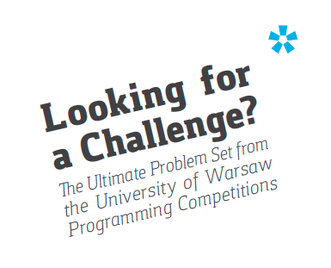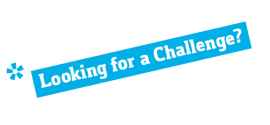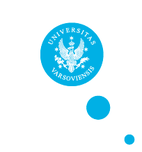More About The Book:

Contest tasks say a lot about the quality of a programming competition. They should be original, engaging and of different levels of difficulty. Finding a solution should cause the contestant to feel great satisfaction, whereas being unable to solve a given task should encourage an individual to broaden their knowledge and develop new skills. This book contains the best tasks from algorithmic and programming competitions organized or co-organized by the University of Warsaw, together with their exemplary solutions.
The selection of the tasks was undertaken by people who have played significant roles in the history of Polish algorithmic and programming competitions as their participants or organizers. All of the authors of texts presented in this book are closely affiliated with the Faculty of Mathematics, Informatics and Mechanics at the University of Warsaw, whether as former or current students or as academic staff.
Each of the tasks presented and discussed in this book was used during one of the following events: Polish Olympiad in Informatics, Junior Polish Olympiad in Informatics, Polish Olympiad in Informatics Training Camp, Central European Olympiad in Informatics, Polish Programming Contest and Algorithmic Engagements.
This book outlines the most significant moments and achievements in the almost 20-year history of Polish algorithmic and programming contests organized or co-organized by staff and students of the Faculty of Mathematics, Informatics and Mechanics at the University of Warsaw. The history of competitions in Poland is all about the people—both organizers and contestants. The fact that Poland was chosen to host the International Olympiad in Informatics in 2005, and the 2012 World Finals of the ACM International Collegiate Programming Contest, says a lot about the quality of programming contests that have been held in Poland over the years. Participants in Polish competitions have numerous international achievements on their résumés. The most important ones include: first place for Filip Wolski and Tomasz Kulczyński in the International Olympiad in Informatics in 2006 and 2007 respectively, as well as the two-time victory of the University of Warsaw in the World Finals of the ACM International Collegiate Programming Contest thanks to Tomasz Czajka, Andrzej Gąsienica-Samek and Krzysztof Onak in 2003 and Marek Cygan, Marcin Pilipczuk and Filip Wolski in 2007.
Polish contestants have had their fair share of successes in other competitions as well, such as TopCoder Open, Google Code Jam, Facebook Hacker Cup and Microsoft Imagine Cup. These achievements would not have been possible without the level of challenge presented by programming contests held in Poland, which have enabled talents to be identified and given adequate opportunity for development.
From the foreword by Prof. K. Diks


